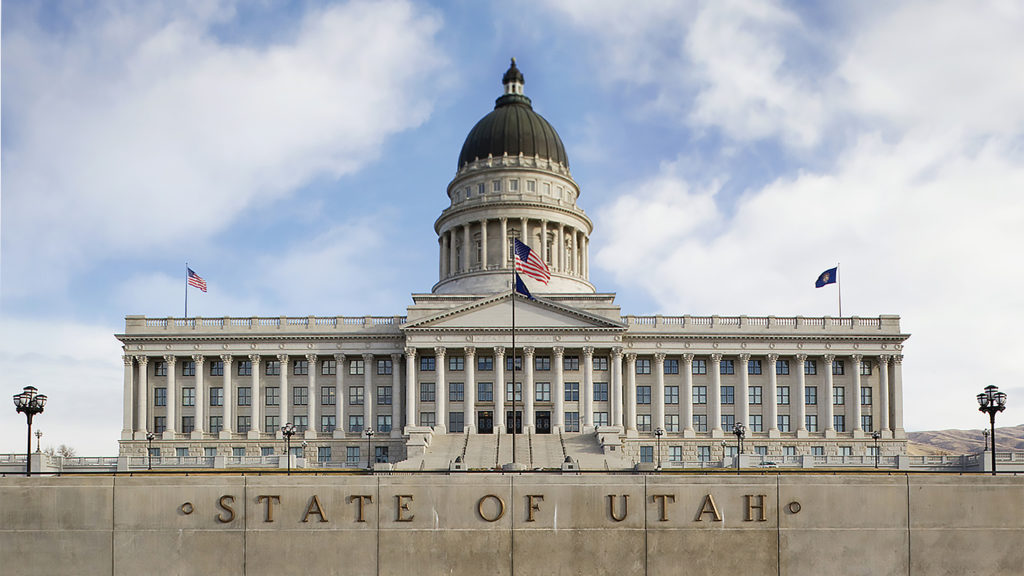
Natural immunity to COVID-19 infection could allow Utah senior living and other workers to sidestep workplace vaccine mandates.
A bill signed into law this week by Utah Gov. Spencer J. Cox, HB 63, clarifies that having “natural immunity” to COVID-19 based on a prior infection will satisfy an employer’s vaccine mandate requirement. Employees must submit a healthcare providers’ note confirming previous infection to qualify for an exemption to an employer inoculation requirement.
Rep. Jefferson Burton (R-Salem), who sponsored the bill, previously called it a “cleanup bill” to legislation passed in 2021 prohibiting employers from mandating vaccines in the workplace. Utah SB 2004, passed in November, requires most Utah employers to waive any COVID-19 vaccine requirement if an employee — or prospective employee — submits a statement objecting to the vaccine based on health or religious reasons, or based on personal beliefs.
SB 2004 did not apply to employers with fewer than 15 workers that showed a link between the vaccine requirement and an employee’s job duties. It also did not apply to workers subject to the Centers for Medicare & Medicaid Services interim rule affecting certain healthcare organizations.
Utah Health Care Association President and CEO Allison Spangler said the bill will not majorly affect assisted living communities in the state since most are not mandating the vaccine.
As in SB 2004, HB 63 mandates that no “adverse action” can be taken against an employee seeking an exemption. The new law defines adverse action as the refusal to hire or employment termination, demotion or reduction of wages. The natural immunity law specifically states that worker reassignment is not an adverse action if the employee’s vaccination status is not the only reason for the reassignment.
The new law also states that an employer still may require vaccination or proof of vaccination if the employer establishes a link between the requirement and the employee’s assigned duties and responsibilities, or if reassignment is not practical.
HB 63 states that employers may not keep or maintain a record or copy of an employee’s proof of vaccination, but it does not prevent an employer from verbally asking an employee to voluntarily disclose vaccination status. The prior law barred employers from maintaining employee proof of vaccination records but did not prohibit an employer from recording whether an employee was vaccinated.
As with the prior legislation, HB 63 requires employers to pay for all COVID-19 testing requirements for employees.
OSHA COVID-19 healthcare ETS
Utah joined 26 other state attorneys general in asking the Occupational Safety and Health Administration to withdraw its COVID-19 vaccination-and-testing mandate for large private employers after the Supreme Court majority blocked the rule. OSHA withdrew the rule soon after.
Separately, OSHA adopted its COVID-19 healthcare emergency temporary standard in June but withdrew the “non-recordkeeping” parts of it in late December because the agency could not complete a final rule in a timeframe called for by the Occupational Safety and Health Act of 1970. Tuesday, OSHA announced that it would hold an informal virtual hearing April 27 as it works to establish a final version of the rule, meant to protect assisted living and other healthcare workers from exposure to COVID-19 at work. The agency also is accepting written comments on its efforts until April 22.
The healthcare ETS required assisted living communities and other healthcare settings to conduct hazard assessments and have written plans in place to mitigate the spread of the coronavirus. The workplace safety rules also required healthcare employers to provide some employees with N95 respirators and other personal protective equipment. Additionally, the standard included social distancing, employee screening, and cleaning and disinfecting protocols. The final version will have changes.


